Vantara Jamnagar is India’s one of the largest private wildlife sanctuaries, located inside the Reliance Jamnagar Refinery Complex in Gujarat. Spanning over 3,000 acres, Vantara is a state-of-the-art animal rescue, rehabilitation, and conservation center dedicated to protecting endangered and rescued wildlife.
In this article, we explore what animals are in Vantara Jamnagar, the unique facilities available, and the sanctuary’s role in wildlife conservation.
Overview of Vantara Jamnagar Wildlife Sanctuary
Vantara is a massive sanctuary home to over 25,000 animals across more than 48 species. Established by Anant Ambani, son of Mukesh Ambani, Vantara focuses on animal welfare with advanced veterinary care, research, and rehabilitation.
Currently, the sanctuary is not open to the public but functions primarily as a rescue and rehabilitation center with plans to expand educational programs in the future.
Animals Found in Vantara Jamnagar
1. Elephants
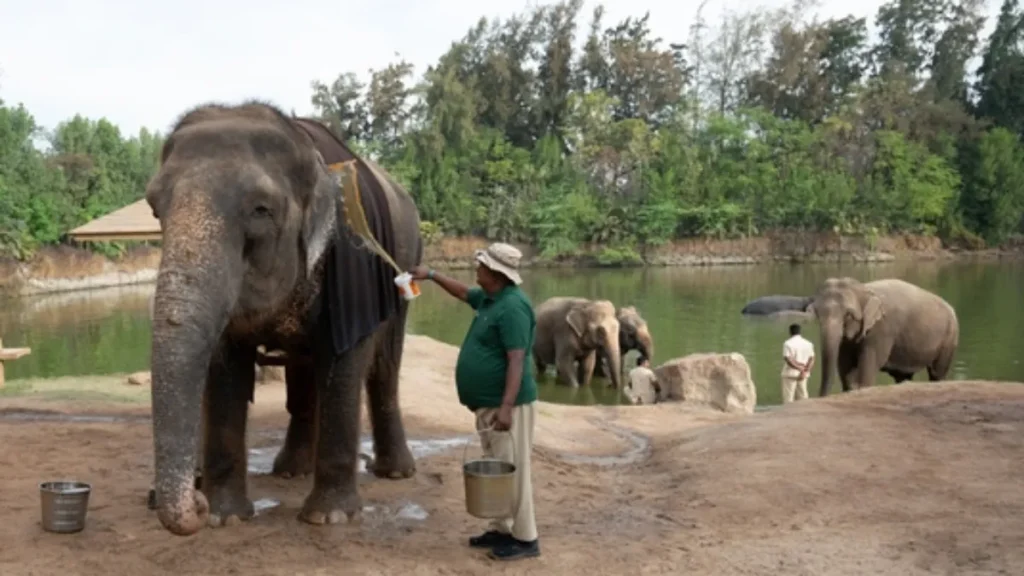
Vantara is home to more than 200 elephants. The sanctuary features a dedicated 600-acre habitat for elephants, complete with hydrotherapy pools and Ayurvedic massage facilities. It also houses an advanced elephant hospital equipped for specialized care.
2. Big Cats
The sanctuary shelters over 300 big cats, including:
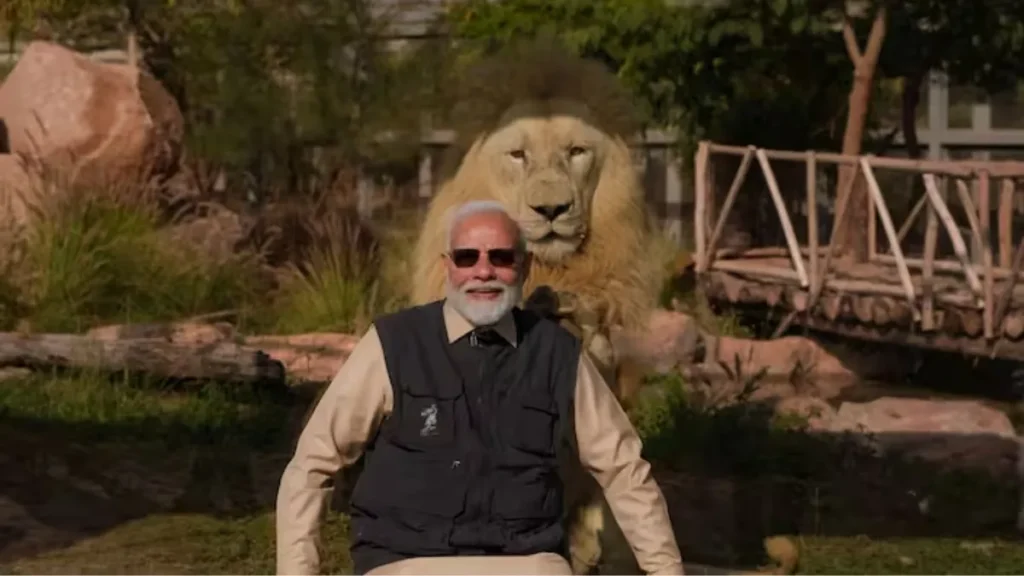
- Bengal Tigers
- Golden Tigers
- Lions
- Leopards
- Snow Leopards
These majestic predators receive medical care and rehabilitation here.
3. Cheetahs
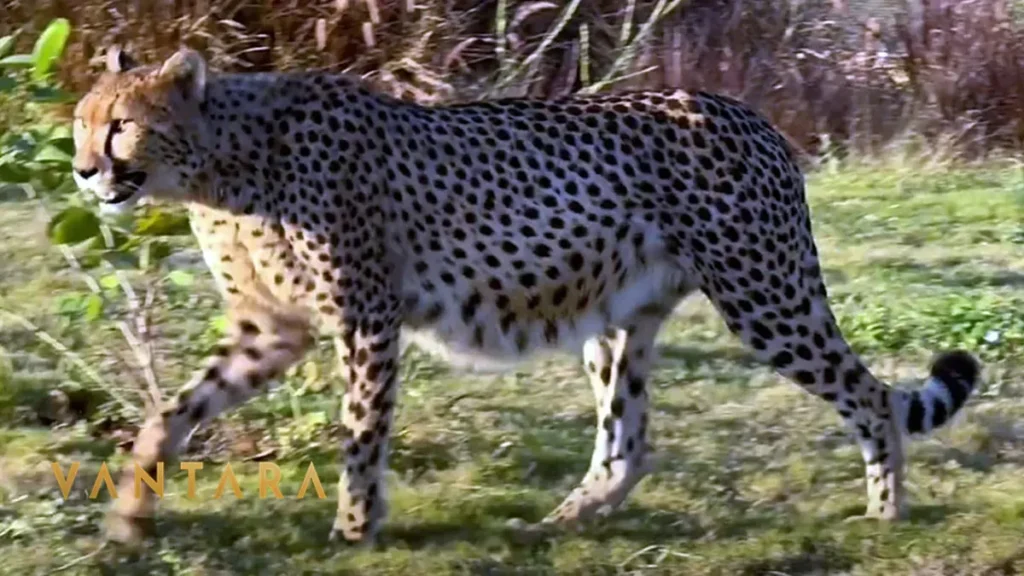
Vantara plays a significant role in cheetah conservation, including breeding programs aimed at reintroducing cheetahs into the wild to boost their dwindling population.
4. Rhinos
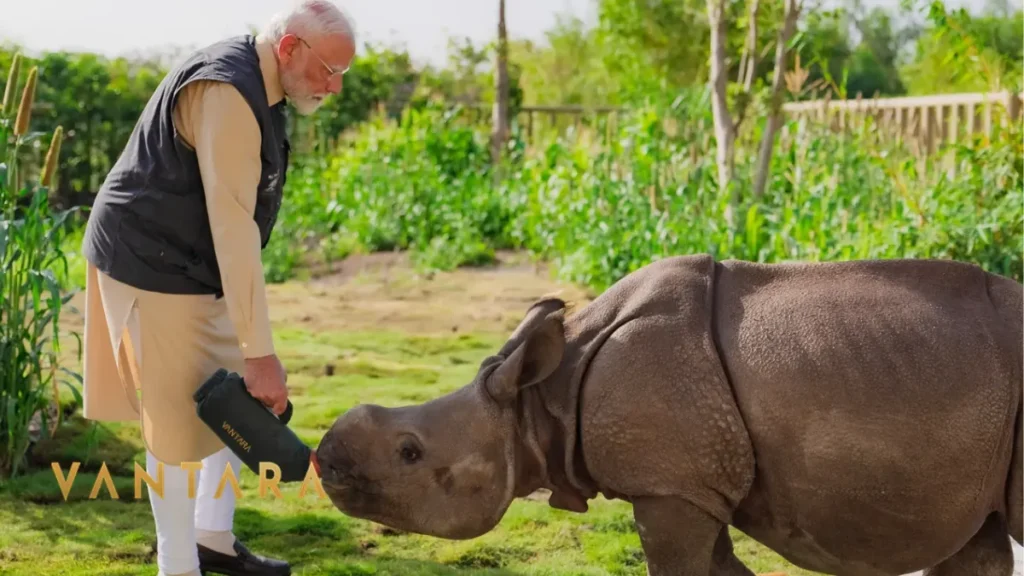
Rhinos are another important species cared for at Vantara, with specialized habitats and medical facilities focused on their well-being.
5. Primates
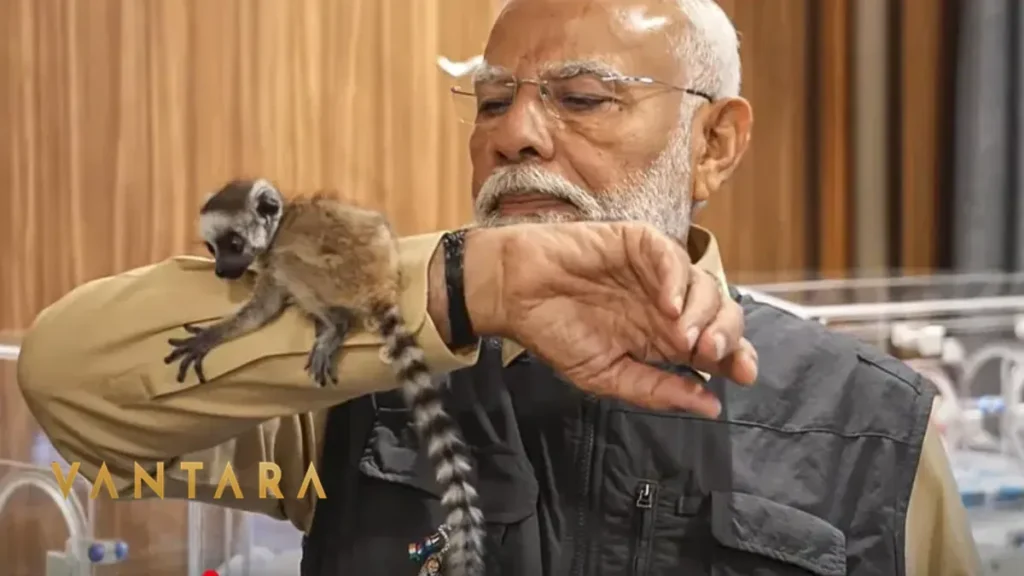
Primates such as chimpanzees and orangutans are part of the sanctuary’s diverse animal population. These species benefit from rehabilitation and enrichment programs designed for their recovery.
6. Reptiles
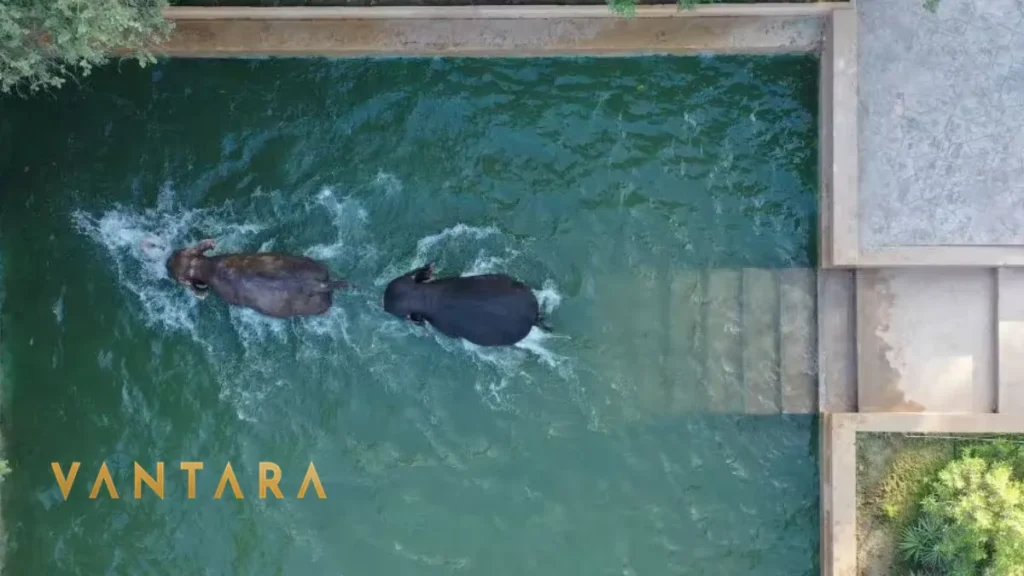
The sanctuary also houses various reptiles including crocodiles, snakes, and turtles, supporting their rescue and conservation.
7. Birds
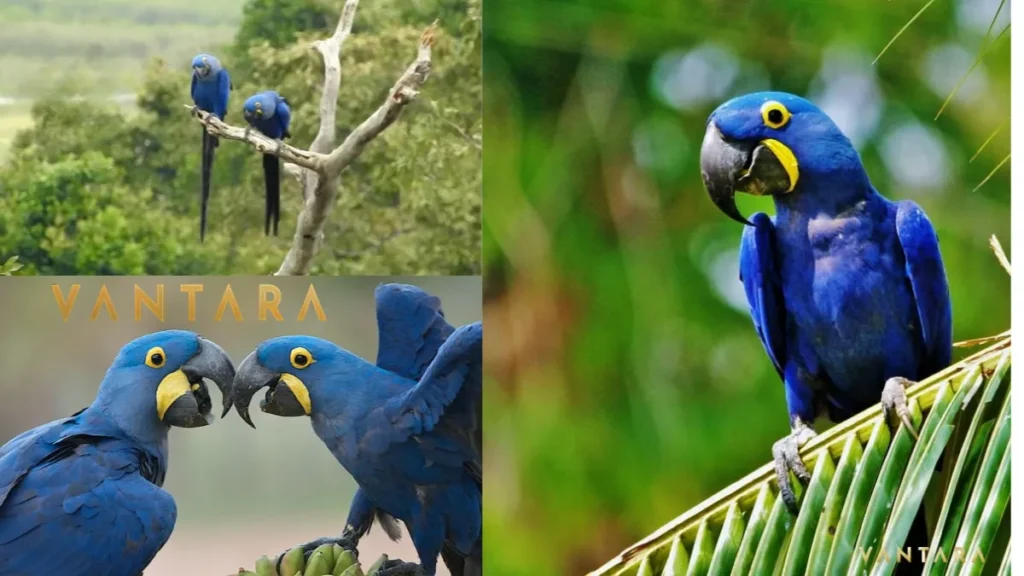
A wide variety of exotic birds are kept in naturalistic enclosures, contributing to the biodiversity of the sanctuary.
World-Class Facilities at Vantara
Vantara Jamnagar is not just an animal sanctuary but a high-tech wildlife care center. Some of the top facilities include:
- Veterinary Hospital: Equipped with MRI and CT scan machines, robotic surgery units, and six surgical centers, offering cutting-edge medical treatment to animals.
- Rehabilitation Units: Specialized zones for rehabilitating injured and rescued animals.
- Research and Academic Centers: Dedicated to wildlife conservation research and training.
Conservation Efforts and Ethical Practices
Vantara collaborates with international organizations like the IUCN and WWF for wildlife conservation. It focuses on:
- Breeding programs for endangered species to help repopulate the wild.
- Ethical rescue and rehabilitation of animals instead of commercial trade.
- Promoting conservation awareness through future educational initiatives.
Why Vantara Jamnagar is Important for Wildlife Conservation
Vantara represents a pioneering effort in India to combine technology, veterinary science, and ethical animal care on a large scale. It serves as a model for:
- Large-scale rescue operations
- Advanced animal healthcare
- Conservation breeding
- Scientific research in wildlife preservation
Conclusion
Vantara Jamnagar is a sanctuary dedicated to protecting and rehabilitating thousands of animals, including elephants, big cats, cheetahs, rhinos, primates, reptiles, and birds. With its advanced facilities and conservation programs, it is setting new standards in animal welfare and wildlife conservation in India.
Although not yet open to visitors, Vantara’s ongoing work will continue to benefit endangered species and promote awareness about wildlife protection.
Read More:
- Vantara’s Massive Scale Revealed: Inside India’s Largest Wildlife Sanctuary Project
- The Secret Complete Map and Travel Guide to India’s Most Luxurious Wildlife Sanctuary
- Where Elephants Heal and Leopards Roar Again – Welcome to Vantara Hospital
- Where is Vantara Zoo Located? Anant Ambani’s Grand Wildlife Sanctuary Unveiled
- Anant Ambani’s Mega Safari, Vantara’s Mind-Blowing Price Tag Revealed




